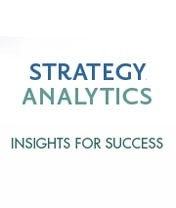In our continuing campaign to call out shallow analysis of Internet Overcharging, we present today’s latest example from Strategy Analytics.
This group, which claims to be “a leading expert on telecommunications tariffs research and analysis” for OECD and EU operators and regulators offered this gem: (underlining ours)
As and when these caps come into force, users will doubtless complain – much as they did with mobile broadband caps. Some will worry about overage charges, while others will bemoan the fact that the caps are set so high that they are paying for bandwidth they simply won’t use (which is kind of ironic, if they have come from a world where they were paying for unlimited usage). From a provider perspective, it is very much a case of damned if you do, damned if you don’t. The ‘trick’ for them is to strike the right balance between fairness – if you use, you pay – and simplicity/transparency, by not creating too many layers around broadband pricing.
We can probably expect to see providers follow AT&T’s lead in fixed broadband pricing. But before the critics start on the inevitable tirade against them, it is worth remembering that genuine flat rate pricing across comms services is not as prevalent as we would all like to believe – a closer look at service terms and conditions will reveal that.
The “critics” Strategy Analytics wants to lecture are consumers.
In nearly three years of covering Internet Overcharging schemes as our main focus of interest, we have never… we repeat never, heard of anyone complaining their home broadband provider delivered ‘too much’ usage allowance. In fact, consumers who complain about broadband pricing point to relentless rate increases, particularly when they come on top of usage limits and/or speed throttles.
The only “strategy” on offer from this group is an apparent interest in raising consumer broadband bills with price tricks. The ultimate in simplicity and transparency is today’s enormously profitable unlimited use broadband service that has raked in billions in profits for cable and phone companies. Consumers need not think twice about every website they visit, providers don’t have to deal with billing confusion, customers are given the opportunity to buy faster speed tiers at a premium price that actually delivers value without restricted use provisions.
The group also claims unlimited broadband is not as ubiquitous as we might believe, hinting use restrictions can be found in Acceptable Use Policies. The truth is, those restrictions which allow a provider to control traffic that proves harmful to the network (bot attacks, hacking, and viruses) or other customers (spam bombs, commercial use of residential accounts, running a server) have always been a part of Acceptable Use Policies since phone and cable companies started selling service. Most providers responsibly enforce these provisions not as a backdoor usage cap, but to prevent activities that clearly create demonstrable problems for the provider or other customers. Few consumers object to them.


 Subscribe
Subscribe

Please bring Fibrant to Laurens, SC. We want to get rid of trash like Charter, Frontier (the worst telecom in the US), and PRTC/AT&T(no UBB…UPGRADE YOUR NETWORK!!).